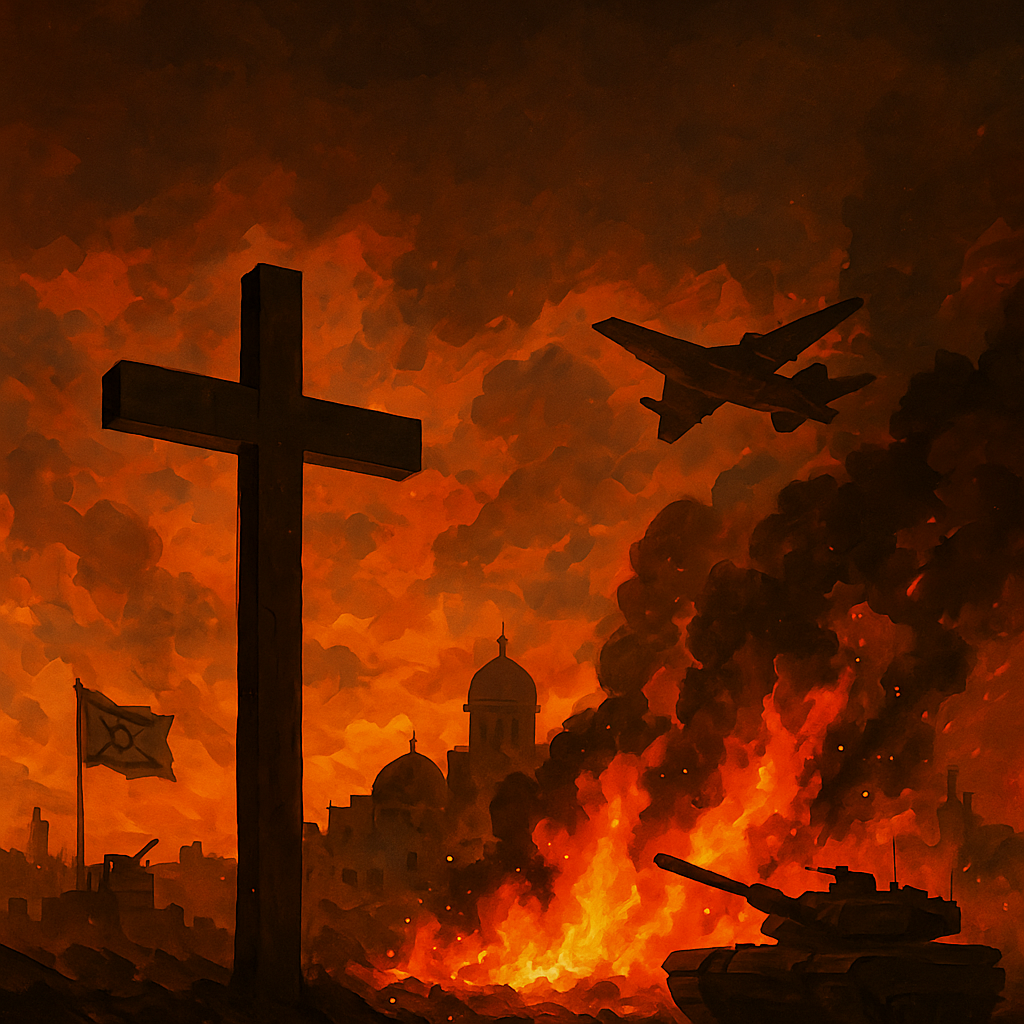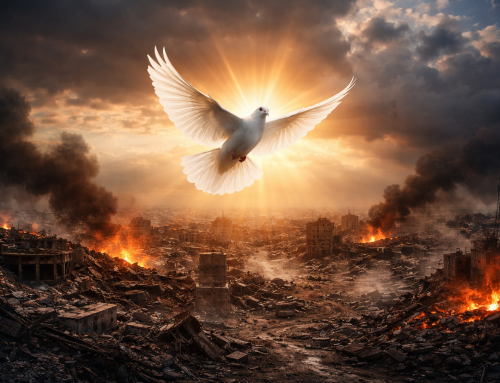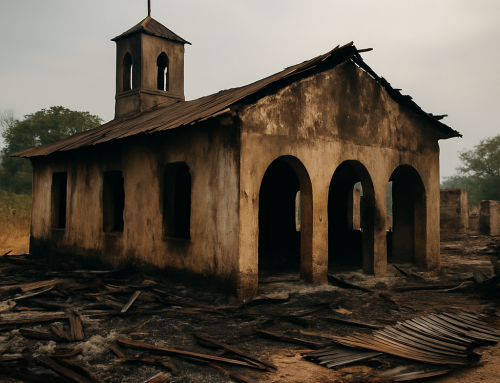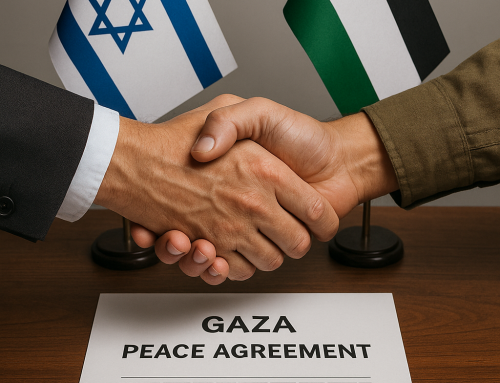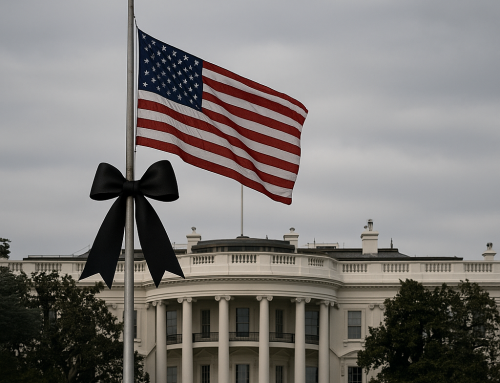Fire and Hope
ISRAEL-IRAN WAR – FIRE AND HOPE
Relations between Israel and Iran have undergone a radical transformation in recent decades. Until 1979, under the Shah’s regime, the two countries had secret but stable relations: economic exchanges and a shared understanding against Sunni Arab threats. However, with the Islamic Revolution and Ayatollah Khomeini’s rise to power, Iran adopted an uncompromising ideological stance, calling Israel “the little Satan” and breaking all diplomatic ties. Since then, Tehran has become the main sponsor of anti-Israel armed groups such as Hezbollah and Hamas, while Israel has considered Iran’s nuclear program an existential threat. On several occasions, Iranian leaders (including Ahmadinejad and Khamenei) have evoked the “end of Israel,” while Israel has responded with targeted attacks, sabotage and cyber-attacks. On June 13, 2025, this underground confrontation erupted openly, with Israeli attacks on Iranian nuclear sites and a harsh military response from Tehran, taking the rivalry to unprecedented heights amid an increasingly unstable global context fraught with eschatological tensions. This transformation in relations between the two countries inevitably leads to the consideration that Iran (Persia) has sided with Israel’s enemies of recent times, confirming what is written in the Bible.
On June 21, 2025, the United States launched a series of targeted raids against three major Iranian nuclear sites-Fordow, Natanz, and Isfahan. The operation, dubbed Operation Midnight Hammer, employed B 2 stealth bombers (which took off from Missouri with false approach routes) and missile-launching submarines. This is the first time ever that GBU 57 “Massive Ordnance Penetrators” bunker buster bombs, coordinated with Tomahawk missiles, have been used in battle. Pentagon speaks of “severe damage” to nuclear centers
President Trump described the action as a “spectacular” success, saying the facilities were “completely obliterated” and warning that any Iranian response will be countered “with far greater force.” However, General Dan Caine – chairman of the Joint Chiefs of Staff – pointed out that the damage is significant but still under final assessment .
Iranian reactions were not long in coming: Foreign Minister Abbas Araghchi called the attack “a horrendous crime,” a violation of national sovereignty and international law (UN Resolution 2231). Iran rejected all diplomatic avenues and reserved “all options” to defend itself .
Globally, there were sharp divisions, with Israel and the United States applauding the action as a decisive blow to nuclear proliferation. Britain and the EU – joined by the United Nations – however, call for restraint, fearing a dangerous military escalation . Russia, China and others in the Global South condemned the attack as a dangerous escalation in violation of international law
In the U.S., the gesture has ignited a political debate: Republicans defend the action, deeming it necessary, while Democrats-including Schumer, Ocasio Cortez and Jeffries-denounce the absence of congressional authorization, fearing uncontrolled conflict .
On the strategic level, the simultaneous use of stealth bombers, submarine-launched missiles and bunker buster bombs represents a significant leap in the U.S. arsenal. Military experts emphasize the ability to strike deep, fortified targets without exposing forces in direct conflict .
What happens now?
– Iran has already responded with a series of missile and drone raids on Israel. Sirens are sounding again in the Gulf, and international shipping companies are receiving navigational alerts .
–The main fear is that the conflict will spread, involving regional allies, the civilian population, and global navigation systems.
– World powers are calling for an immediate truce and the resumption of dialogue before the entire Middle East precipitates a generalized conflict.
The U.S. attack marks a marked change of pace in U.S. and allied strategy: from covert operations to a direct and open response. Iranian and international reactions portend turbulent days, in which every step could push toward a conflict of unprecedented dimensions.
But what does the Bible say?
According to the Bible, particularly in prophetic and eschatological texts, Israel will find itself surrounded and attacked by a coalition of nations in the “last times” before the return of the Messiah. These alliances, described symbolically and sometimes geographically, have fascinated theologians and scholars for centuries. Here is a list of the main hostile alignments to Israel according to Scripture:
1. Gog and Magog (Ezekiel 38-39)
– Leader: Gog, “prince of Rosh, Mesec and Tubal” (Eze 38:2)
– Nations involved:
o Magog, Mesec, Tubal – identified by many scholars with areas of Eastern Europe o Russia and the Caucasus
o Persia – today Iran
o Cush – commonly associated with Sudan or Ethiopia
o Put – area identified with Libya or North Africa
o Gomer and Togarma-often associated with areas of Turkey or Armenia
– These nations will come from the north “like a cloud covering the land” (Ez 38:9)., but God will intervene supernaturally.
2. The nations of Zechariah 12 and 14
– “All the nations of the earth will gather against Jerusalem” (Zechariah 12:3; 14:2).
– The scenario is global: Israel will be isolated, and the whole world will seem to be arrayed against it.
– But the Lord will intervene to defend Jerusalem, and the enemies will be struck with divine plagues (Zech 14:12).
3. Armageddon (Rev. 16:14-16; 19:19)
– The kings of the land gather for the final battle in the valley of Har-Magedon.
– Here, under demonic influence, world forces openly oppose God and His people.
– There will take place the glorious coming of Jesus Christ, who will destroy armies with “the sword that comes out of His mouth.”
4. The enemies of Psalm 83
Some scholars (not all) believe that Psalm 83 prophesies an Arab coalition against Israel, including:
o Edom, Moab, Ammon (now Jordan).
o Ishmaelites, Hagareni (Saudi Arabia)
o Ghebal, Amalek, Philistines (Lebanon, Gaza)
o Assyria (Syria/Iraq)
– This covenant asks, “Let us destroy them as a nation, and let the name of Israel be remembered no more” (Psalm 83:4)
According to the Bible, Israel will be surrounded by an international coalition made up of nations from the Middle East, North Africa, Eurasia and probably all over the world, in an atmosphere of growing spiritual hostility. But Scripture is clear that Israel will not win alone; rather, God Himself will intervene on behalf of His people and His name.
Time is at an end! THE FIRE IS AT THE GATES ! But the HOPE of those who believe is also at the gates because those who hope in the Lord will never be confounded.
THE REDEEMER COMES !
YES, COME MR. JESUS!
Notes.
The information in this article comes from reliable international journalistic sources and is current as of June 21, 2025:
– The Wall Street Journal – “The U.S. Strike on Iran Began With a Ruse”
https://www.wsj.com/politics/national-security/the-u-s-strike-on-iran-began-with-a-ruse-c7188cd2
– New York Post – “Inside Operation Midnight Hammer: US dropped 14 bunker-buster bombs on Iran’s Fordow nuke site”
https://nypost.com/2025/06/22/us-news/inside-operation-midnight-hammer-us-dropped-14-bunker-buster-bombs-on-irans-fordow-nuke-site
– TIME – “Iran Delivers Furious Warning After ‘Heinous’ U.S. Strikes”
https://time.com/7296512/iran-responds-united-states-strikes-trump-nuclear-sites-warning
– The Times (UK) – “Israel-Iran live: American deterrence is back, says US defense secretary”
https://www.thetimes.co.uk/article/us-bombs-iran-trump-live-latest-news-attack-nuclear-gng3jkl5t
Francesco Pastone

